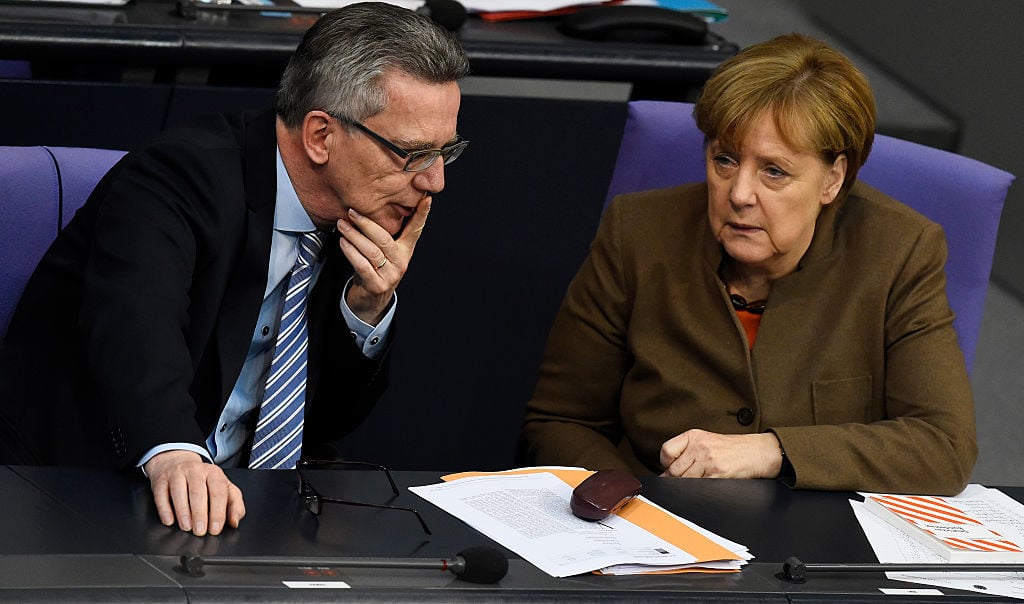Politics
How This Gerhard Richter Painting Reveals Germany’s National Identity Crisis
Interior minister Thomas de Maizière said Germany must look ahead.

Interior minister Thomas de Maizière said Germany must look ahead.

by
Henri Neuendorf

Germany’s minister of the interior Thomas de Maizière pulled out a photo of a Gerhard Richter painting during a speech on Monday to illustrate Germany’s “obsessive preoccupation with its past.”
Speaking at the meeting of the civil servants’ association in Cologne, the politician from Angela Merkel’s center-right CDU party said that Germany must strengthen its identity and look towards the future in order for the country to thrive. He used Richter’s Betty (1991), which depicts the artist’s daughter looking over her shoulder with her back and face turned away from the viewer to illustrate his point, Monopol reports.
“Do we know our own face?” He asked the audience. “Do we know exactly who we are and who we want to be?…We must know our face to be able to give information and guidance to others who come to us,” he said. In addition to looking back, de Maizière said, it’s important to face forwards as well. The picture was symbolic of Germany’s search for a collective identity, he added.
The minister later explained that he had seen the artwork at Berlin’s Martin Gropius Bau in an exhibition put together by the British curator and former director of the British museum Neil MacGregor.

Gerhard Richter is a fierce critic of Angela Merkel and Thomas de Maizière’s immigration policies. Photo: TOBIAS SCHWARZ/AFP/Getty Images.
Ironically, given the choice of de Maizière’s visual aid, Richter is one of the Merkel-led CDU’s fiercest critics, having recently lashed out against her government’s “welcoming culture” at the core of Merkel’s refugee policy, which the artist called “false.”
Asked about his view of contemporary German society in a YouTube video produced by the Louisiana Museum ahead of his exhibition at the Danish institution, the painter told curator Anders Kold “It has the same or similar problems as all other countries nowadays…with this huge wave of immigration. And,” he added, “I’m a little more skeptical than Mrs. Merkel, who said, ‘We can handle this.'”